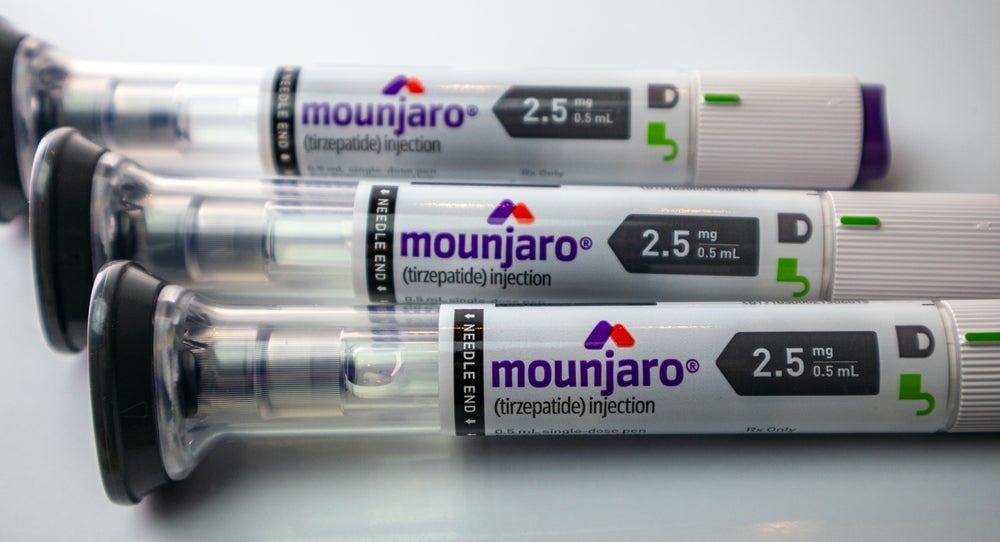Almost 50% of Depression Cases May Be Resistant to Treatment, Study Finds
In a recent groundbreaking study, researchers have unveiled alarming statistics regarding treatment-resistant depression (TRD), indicating that nearly half of individuals diagnosed with depression do not respond adequately to traditional antidepressant therapies. Published in the prestigious British Journal of Psychiatry, this research sheds light on the increasing challenge of finding effective treatments for one of the […]


In a recent groundbreaking study, researchers have unveiled alarming statistics regarding treatment-resistant depression (TRD), indicating that nearly half of individuals diagnosed with depression do not respond adequately to traditional antidepressant therapies. Published in the prestigious British Journal of Psychiatry, this research sheds light on the increasing challenge of finding effective treatments for one of the most prevalent psychiatric disorders globally. Led by a dedicated team from the University of Birmingham and Birmingham and Solihull Mental Health NHS Foundation Trust, the study analyzed electronic healthcare records to understand the extent and implications of TRD among patients.
The revelations from this study are particularly disheartening. The data suggests that approximately 48% of patients diagnosed with depression have already tried at least two different antidepressant medications without experiencing significant relief. Even more striking, 37% of participants reported attempting four or more treatment options in their quest for better mental health. This staggering number raises questions about the efficacy of current treatment approaches and highlights the pressing need for new avenues of research and treatment strategies.
Treatment-resistant depression is classically defined as a form of depression that remains challenging to manage after a patient has tried two distinct antidepressants without success. Unfortunately, the current clinical guidelines for managing TRD are sparse and often fail to provide a clear roadmap for both patients and healthcare professionals. This lack of direction leaves many individuals grappling with debilitating symptoms and feeling increasingly despondent after exhausting multiple treatment options.
Throughout the study, qualitative interviews were conducted with TRD patients, allowing them to share their unique experiences and shed light on the emotional toll of their condition. Many participants expressed feelings of profound hopelessness after experiencing repeated failures with various treatments. They reported frustration with the “one size fits all” approach that often characterizes antidepressant prescriptions. This mismatch between individual patient needs and the uniform allocation of the same medications raises serious concerns about the overall efficiency of current mental health treatment paradigms.
PhD researcher Kiranpreet Gill, a lead author on the study, eloquently articulated the findings, emphasizing the urgent need for innovative treatment options. “This paper highlights how widespread treatment-resistant depression is among those who are diagnosed with depression,” Gill asserted. She pointed out the irony that the arduous journey of seeking effective treatment can exacerbate feelings of despair, thus perpetuating a detrimental feedback loop. In essence, the struggle to find relief becomes a risk factor for worsening mental health conditions, underscoring the crucial need for a comprehensive reevaluation of treatment methodologies in psychiatry.
Compounding the challenges faced by TRD patients are the increased risks of comorbid psychiatric disorders, such as anxiety, self-harm, and personality disorders. The study noted that individuals with TRD exhibit a 35% higher likelihood of developing a personality disorder compared to the general population, as well as a staggering 46% increase in the odds of cardiovascular diseases. The correlation between mental and physical health issues among those with TRD represents a critical aspect of healthcare that needs to be urgently addressed to provide holistic and effective treatment plans.
In this era of enhanced mental health awareness, the stark realities surrounding TRD necessitate immediate attention from both the medical community and policymakers. Professor Steven Marwaha, Clinical Professorial Fellow at the Institute for Mental Health at the University of Birmingham and co-author of the study, elaborated on the need for greater clarity in care pathways for TRD patients. He remarked, “This study is important as the data demonstrates people with TRD are at a higher risk of a range of poorer outcomes, and that we need better defined care pathways for helping this population.” The urgency for developing and testing new treatment modalities is a call to action for researchers, clinicians, and mental health advocates alike.
The research is part of broader initiatives under the Mental Health Mission Midlands Translational Centre, which emphasizes innovative, evidence-based interventions for underserved populations grappling with severe mental health challenges. Funded by the National Institute for Health and Care Research, this center aims to bridge the gap in mental health care for diverse and deprived populations, ensuring that everyone has access to the care they need.
The discourse around TRD highlights an essential shift in mental health treatment — from a singular focus on pharmacological interventions to an integrated approach that considers various therapeutic modalities. Such an approach may include psychotherapies, lifestyle interventions, and emerging treatment options like neuromodulation techniques. As research continues to evolve, the hope is that new treatments will offer relief to those who have found little solace in conventional medications, ultimately fostering a more compassionate and effective healthcare system.
With over 2461 individuals reflected in this study, the urgency for change in managing TRD has never been more pronounced. The voices of those who bravely shared their treatment journeys serve as critical reminders of the emotional and physical ramifications of untreated and poorly managed depression. As stakeholders in mental health push for systemic reforms, the shared experiences of patients must be at the forefront of discussions and decision-making processes.
In conclusion, the recent study on treatment-resistant depression provides a sobering look at the landscape of mental health treatment. The staggering prevalence of TRD and its associated risks, as highlighted by the research, must catalyze a renewed commitment to advancing the science and practice of psychiatry. The journey toward effective treatment options is fraught with challenges, yet it is imperative that we remain steadfast in our pursuit of solutions that will alleviate suffering and enhance the quality of life for millions affected by depression. As the mental health community rallies around these findings, the hope remains that innovative approaches will emerge, fostering a brighter future for individuals fighting the silent battle of treatment-resistant depression.
Subject of Research: People
Article Title: Examining the needs, outcomes and current treatment pathways of 2461 people with treatment-resistant depression: mixed-methods study
News Publication Date: 12-Mar-2025
Web References: http://dx.doi.org/10.1192/bjp.2024.275
References: The British Journal of Psychiatry
Image Credits: N/A
Keywords: Treatment-resistant depression, antidepressants, mental health, psychiatric disorders, depression care, innovative treatment options, research, mental health initiatives.
Tags: antidepressant efficacyclinical guidelines for depressionelectronic healthcare records analysisinnovative therapies for TRDmental health challengesmental health statisticsnew treatment strategies for depressionpatient experiences with antidepressantspsychiatric disorders prevalencesearch for effective depression treatmentstreatment-resistant depressionUniversity of Birmingham research
What's Your Reaction?


































